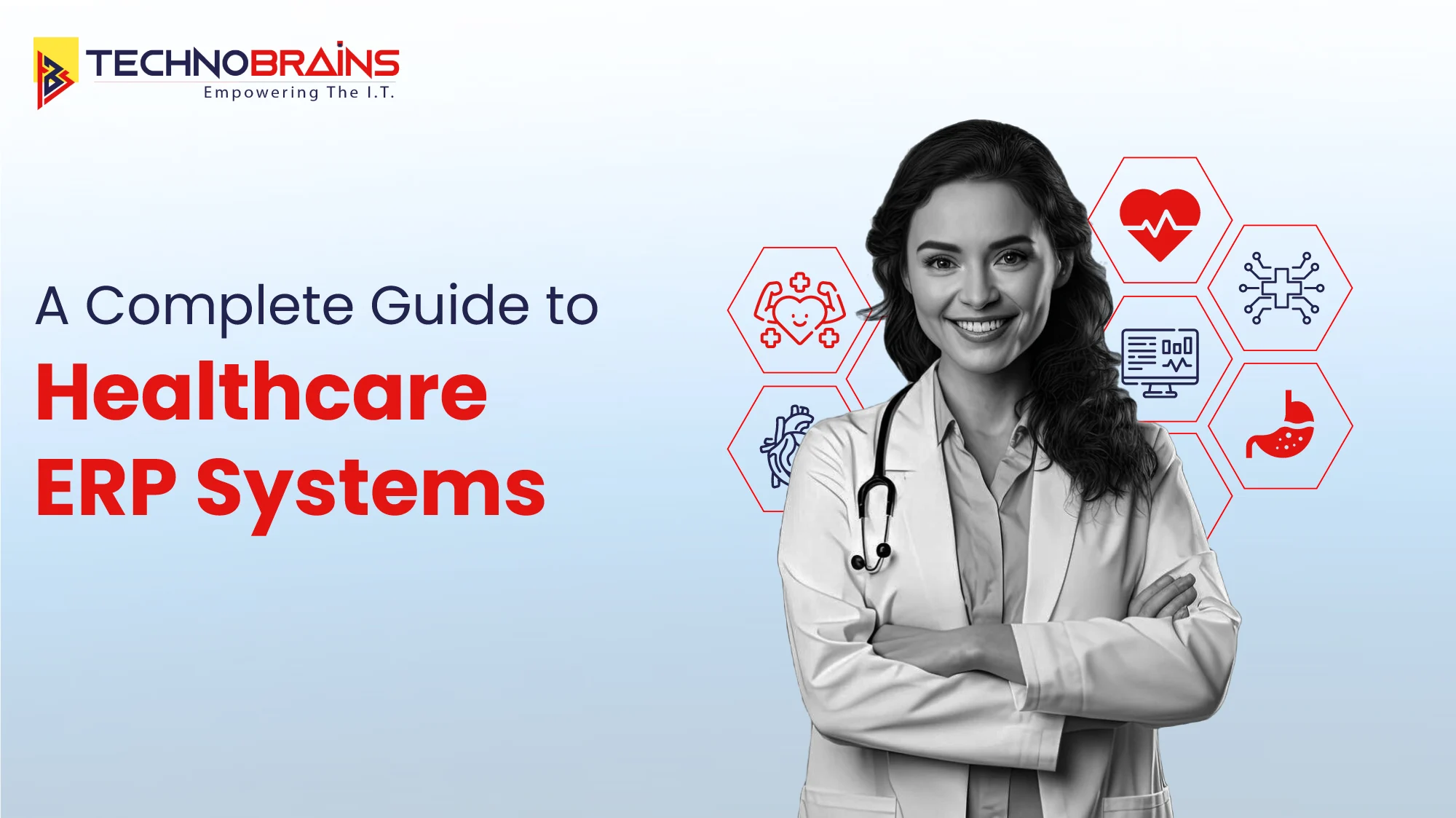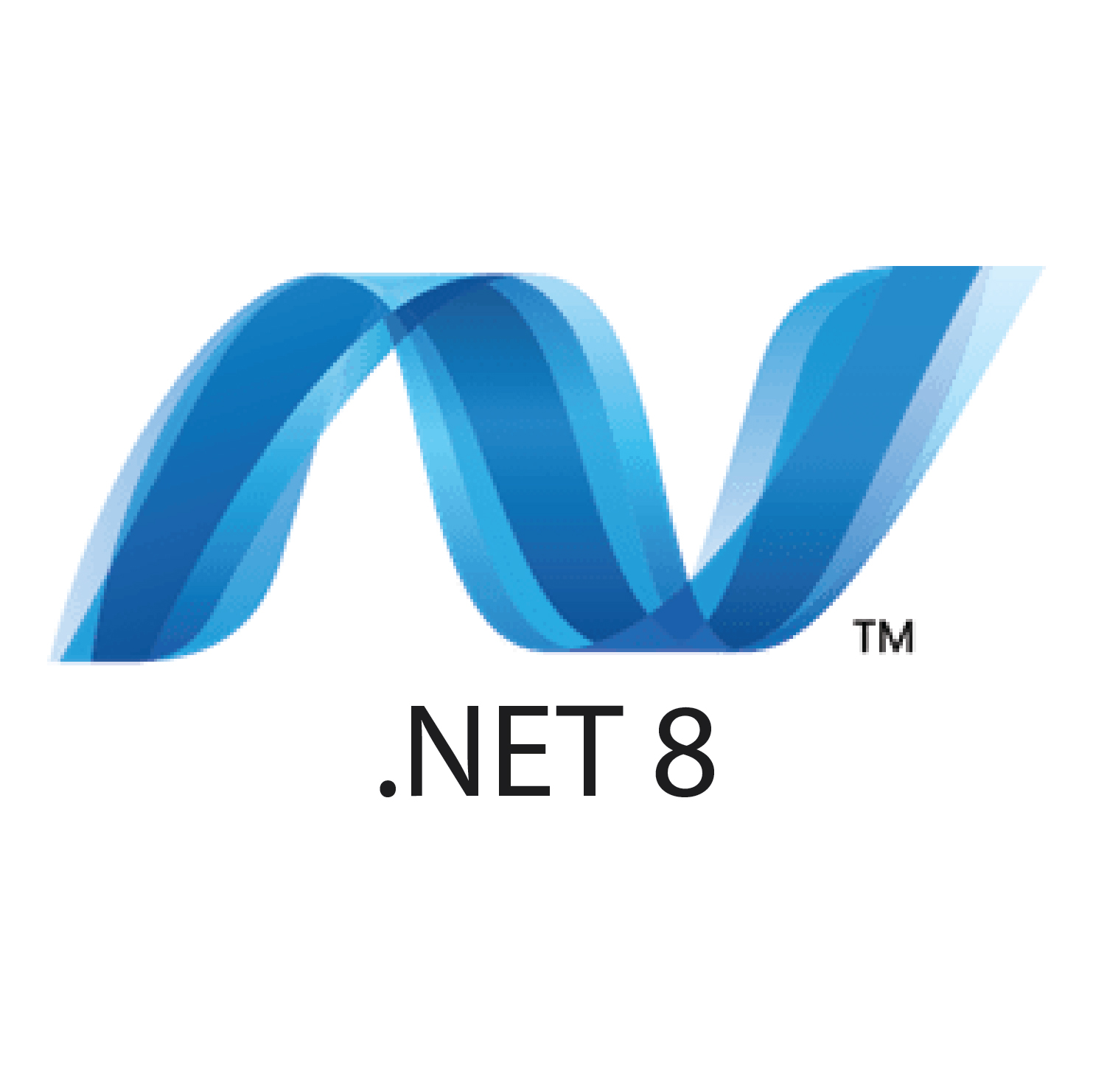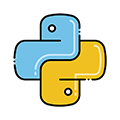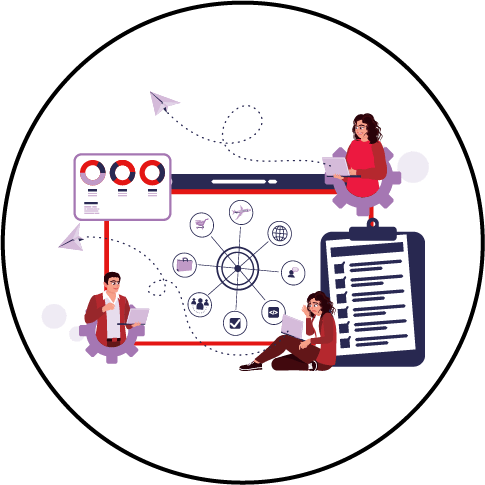Understanding Healthcare ERP or Enterprise Resource Planning: it is the most powerful tool designed to integrate all aspects of a healthcare facility, from finance and administration to clinical processes. In this blog, we are going to discuss the benefits, key features, and costs associated with healthcare ERP systems.
Benefits of Healthcare ERP Systems
The Benefits of ERP in Healthcare improve productivity and patient satisfaction for the organization concerned. Four of those gains are listed here:
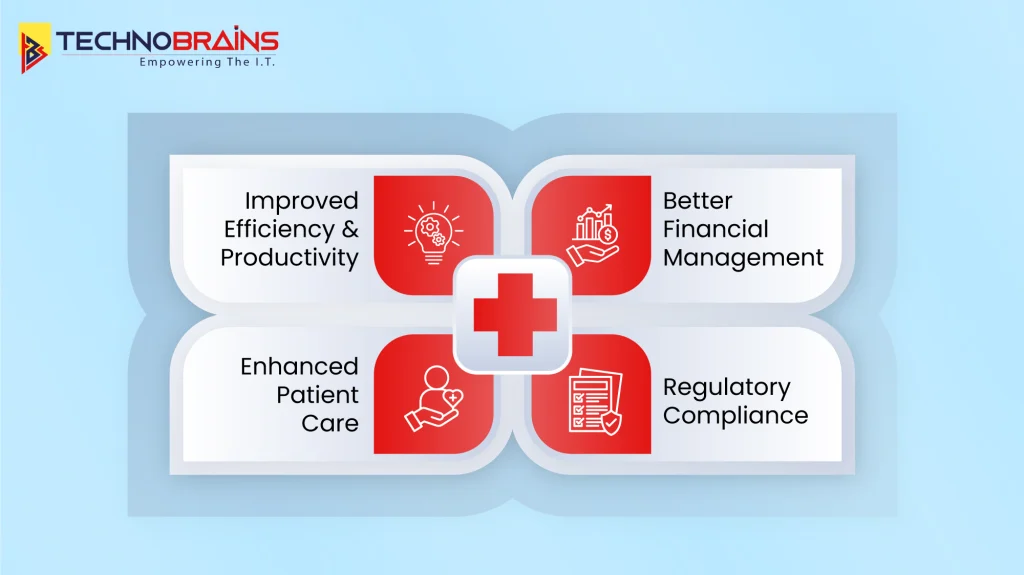
Improved Efficiency and Productivity
- Routine automation cuts down manual efforts.
- Streamlined workflows across departments, minimizing delays and inefficiencies.
- Optimized resource allocation to avoid unnecessary costs and time delays.
- Eliminate double data entry, ensure accuracy, and make quicker decisions.
Better Financial Management
- Centralized financial data enables comprehensive budgeting and cost tracking.
- Real-time reporting for empowering decision-makers, and improving financial forecasting.
- Smaller risk of errors due to the automation of such financial processes as billing and invoicing.
- Improved compliance with financial regulations and reporting requirements.
Enhanced Patient Care
- Improved access to patient data with an improvement in clinical decision-making.
- Smaller wait times due to efficient scheduling and management of resources.
- Streamlined patient flow, from admission to discharge, leading to better overall care.
- It facilitates better communication among healthcare providers in the management of a patient.
Regulatory Compliance
- Includes built-in features that ensure compliance with health care regulations, such as HIPAA.
- Reporting automation for auditing and compliance purposes.
- Ensures data security and confidentiality for the patient.
- Assists in maintaining medical ERP software records correctly and up to date as required by law.
Key Features of Healthcare ERP Systems
ERP Systems in Healthcare are designed with various features that facilitate smooth operations and support both clinical and administrative functions. Four of the most important features include:
Integrated Patient Management
- Centralized patient records to enable better health delivery and decision-making.
- One-stop appointment scheduling, patient check-in, and discharge.
- Easy tracking of patient history, treatment plans, and medication.
- It involves real-time access to medical information by healthcare professionals for timely interventions.
Inventory and Supply Chain Management
- Efficient management of inventories, medical supplies, and pharmaceuticals.
- Automated notifications of low stock to prevent overstocking or stock-outs.
- Tracking supplies and equipment across departments in real-time.
- Improved cost control from optimized buying and vendor management.
Read Also, Why Choose TechnoBrains for Healthcare Software Development?
Financial Management and Billing
- Comprehensive billing solutions integrated into the patient care systems.
- Automate claims processing, minimizing billing errors and reducing revenue cycles.
- Transparent financial reporting to track income, expenses, and reimbursements.
- Payment processing integrated with insurance and third-party providers.
Human Resource Management
- Centralized employee data management makes access to all HR records easy.
- Automated payroll, management of benefits, and shift scheduling.
- Performance tracking and reporting tools for staff efficiency assessment.
- Labor compliance tools include licensing and certification.
Costs of the Healthcare ERP System
While there are considerable benefits related to healthcare ERP systems, the implementation costs can vary drastically. Healthcare organizations need to understand what the potential investment could be. The following are four key cost factors to consider:
Software Licensing and Subscription Fees
- ERP software can either be licensed permanently or stand on subscription services.
- Subscription-based models often have lower upfront costs but recurring payments.
- Licensing fees depend on the number of users and functionality.
- Some ERP vendors quote the price of their software depending on the size of the organization.
Customization and Implementation Costs
- Customization to suit the needs of a facility in the care sector may require extra cost.
- The cost for the implementation may include migration, integration, and training.
- Vendor costs of consultation in studying the workflows and aligning the ERP system to achieve organizational goals.
- Ongoing support and system maintenance fees post-implementation.
Training and Support Costs
- The training of the personnel on the new system is important and might also involve some substantial investment.
- Training costs include direct costs, such as instructor fees, as well as indirect costs, such as taking staff away from regular duties.
- Ongoing support services for troubleshooting, including system updates.
- Some vendors provide packaged training programs under a consolidated purchase, whereas others charge separately for the services.
Maintenance and Upgrade
- The ERP system needs regular updates to function properly and stay secure.
- These may also include maintenance costs in the form of software updates, bug fixes, and other related customizations.
- Upgrades for adding more functionality or features may be costly.
- Some vendors include maintenance in the subscription, while others charge additional costs.
Read Also, What are the Steps to Develop Healthcare Software?
Conclusion
Different Types of Healthcare Software offer transformational solutions that bring efficiency, enhance patient care, and maintain compliance with regulations. The integration of various functions from patient management to financial tracking into one smooth workflow benefits not only healthcare providers but also patients. While the upfront investment in an ERP system can be significant, the long-term benefits—such as improved operational efficiency, better patient care, and reduced costs—often outweigh the costs.
Transform your healthcare services and get in touch with TechnoBrains for innovative Healthcare software development.
Still stuck with questions? Contact Us today and get all your solutions here.
